Duncan Miriri
Updated Wed, September 6, 2023
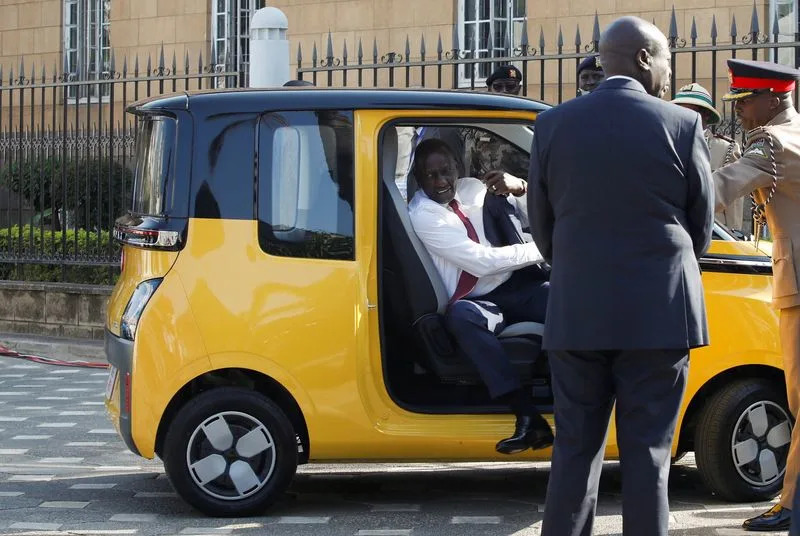
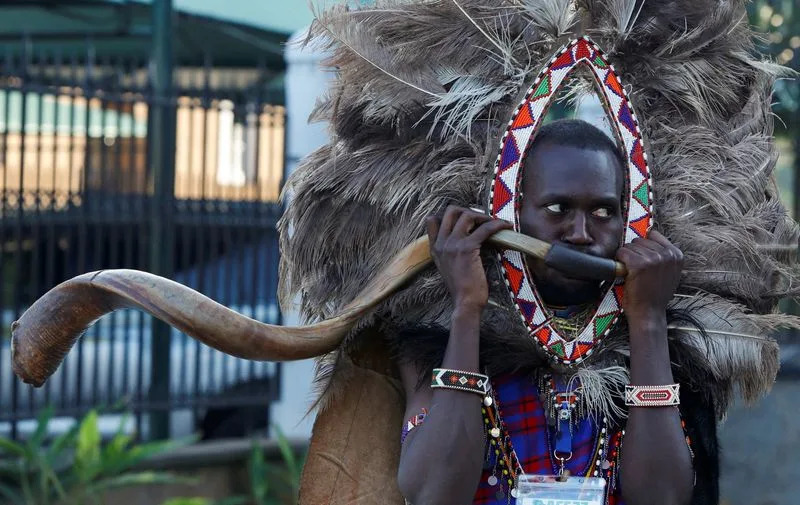
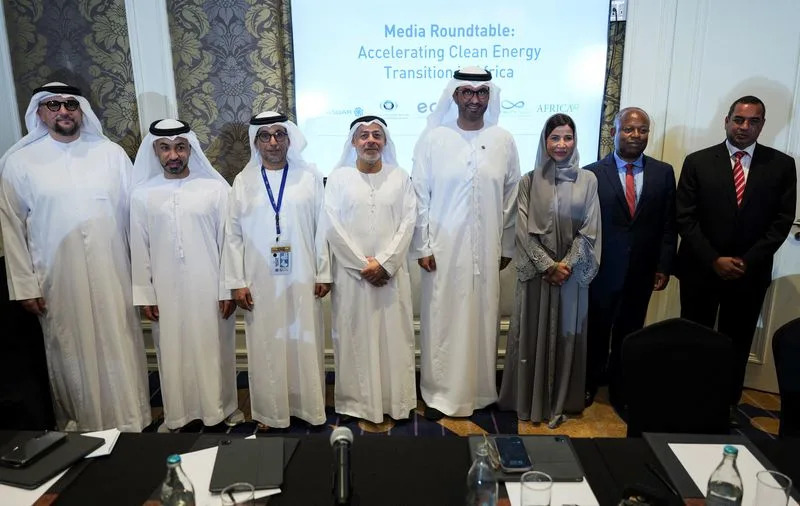
By Duncan Miriri
NAIROBI (Reuters) -African leaders on Wednesday proposed new global taxes and reforms to international financial institutions to help fund climate change action in a declaration that will form the basis of their negotiating position at November's COP28 summit.
The Nairobi Declaration capped the three-day Africa Climate Summit in Kenya, which was dominated by discussions of how to mobilise financing to adapt to increasingly extreme weather, conserve natural resources and develop renewable energy.
Despite suffering from some of the worst impacts of climate change, Africa only receives about 12% of the nearly $300 billion in annual financing it needs to cope, according to researchers.
While organisers emphasised market-based solutions such as carbon credits in the lead-up to the summit, the final declaration was heaviest on demands that major polluters and global financial institutions commit more resources to help poorer nations and make it easier for them to borrow at affordable rates.
It urged world leaders "to rally behind the proposal for a global carbon taxation regime including a carbon tax on fossil fuel trade, maritime transport and aviation, that may also be augmented by a global financial transaction tax".
It said implementing such measures at a global level would ensure large-scale financing for climate-related investments and insulate the issue of tax raises from geopolitical and domestic political pressures.
About two dozen countries impose taxes on carbon, according to the International Monetary Fund (IMF), but the idea of a global carbon tax regime has never gained much traction.
On Tuesday, Kenyan President William Ruto cited proposals in the European Union for a financial transaction tax (FTT) as a potential model.
After the European Commission proposed an FTT in 2011, some conservation groups said the money should finance environmental priorities.
The commission's proposal never won the unanimous approval required from the European Council to become law, although some member states have enacted their own FTTs.
INTERNATIONAL FINANCIAL SYSTEM
African countries will take the proposals in the Nairobi Declaration to a U.N. climate conference later this month and the COP28 summit which begins in the United Arab Emirates in late November.
Joab Bwire Okanda, a senior advisor at the Christian Aid charity, said the call for a global carbon tax was welcome but that "to make polluters really pay, false solutions like carbon credits that allow polluters a free ride without taking meaningful action need to be consigned to the dustbin".
Some activists say the credits, which allow polluters to offset emissions by funding green activities, are a pretext for big polluters to keep emitting carbon dioxide.
Ruto said governments, development banks, private investors and philanthropists committed a combined $23 billion in all to green projects over the three days, including hundreds of millions to a major carbon markets initiative.
But African leaders acknowledged that those kinds of investments only scratch the surface of the continent's financial needs and said more systemic changes were needed.
For example, African countries say they are forced to pay borrowing costs that are five to eight times higher than wealthy countries, leading to recurrent debt crises and preventing them from spending more to respond to climate change.
The declaration called on multilateral development banks to increase concessional lending to poorer countries and for the "better deployment" of the IMF's special drawing rights mechanism.
Other proposals included measures to help indebted countries avoid default such as instruments that can grant 10-year grace periods and extend sovereign debt tenor.
Some analysts said the summit had not focused enough on how to help Africans adapt to extreme weather.
"Many communities bearing the brunt of increasing floods and droughts, while also at risk of conflict, are disappointed that there wasn’t more emphasis on ensuring that green investments trickle down to them," said Nazanine Moshiri, a senior analyst at the International Crisis Group think-tank.
(Additional reporting by Susanna Twidale in London; Writing by Aaron Ross; Editing by Alison Williams and Emelia Sithole-Matarise)
World losing race to meet climate goals, COP28 president says
Duncan Miriri
Updated Tue, September 5, 2023
Kenya hosts first Africa Climate Summit in Nairobi
By Duncan Miriri
NAIROBI (Reuters) -The world is losing the race to meet its climate change goals, the president of the upcoming COP28 summit said on Tuesday, as African leaders called for changes to what they say is an unfair international climate finance system.
The grim assessment by Sultan Al Jaber, who will preside over the summit in the United Arab Emirates (UAE) in late November, came three days before the United Nations publishes its first "global stocktake", an assessment of how nations are doing in their efforts to tackle climate change.
"We are not delivering the results that we need in the time that we need them," Jaber, who also heads the Abu Dhabi National Oil Company, told delegates at the inaugural Africa Climate Summit in Kenya's capital, Nairobi.
The summit, which opened on Monday, is focused on mobilising financing for Africa's response to climate change.
While Africa is suffering from some of the most severe impacts of climate change, the continent only receives about 12% of the financing it needs to cope, according to researchers
Hundreds of millions of dollars of investments in sustainable development projects were announced on Monday, and on Tuesday Jaber announced the UAE was pledging $4.5 billion dollars to develop 15 GW of clean power in Africa by 2030.
Africa currently has about 60 GW of installed renewables capacity.
Germany also announced 450 million euros ($482.31 million) in financing, including 60 million for a green hydrogen project in Kenya, and the United States committed $30 million to supporting climate resilience and food security efforts.
African officials say the investments are welcome but that meeting the continent's financing needs will require a transformation of the global climate financing architecture, particularly given governments' high debt loads.
Specifically, African states plan to push at the COP28 for the expansion of special drawing rights at the International Monetary Fund that could unlock $500 billion worth of climate finance, which could be leveraged up to five times.
Kenyan President William Ruto said that special drawing rights should be made available to the countries that need them most, which he said has not previously been the case.
CARBON TAX
Complaining that African countries pay five times as much in interest as other borrowers, he called on multilateral finance institutions to increase concessional lending and for a "conversation" about a carbon tax to finance development.
"Those who produce the garbage refuse to pay their bills," Ruto said, striking a different tone from Monday when he said the summit was not to "catalogue grievances and list problems".
Joseph Ng'ang'a, who was appointed by Ruto to lead the summit's secretariat, said the proposal was a carbon tax that could be collected from fuel suppliers, relieving governments of the domestic political pressure against taxing fossil fuel consumption.
"If the carbon tax is at source... every barrel that comes out of the ground has a tax on it," he said. "And because fossil fuels are sold on a global market, you can track it, then it is an even cost globally."
The president of the African Development Bank, Akinwumi Adesina, called for the continent's natural wealth, notably its forests which sequester carbon, to be accounted for when calculating its economic output. He said this would make it easier for African countries to access debt financing.
A loss and damage fund was agreed at last year's COP27 to help poor countries battered by climate disasters, but Majid Al Suwaidi, COP28's director general, said negotiations over how to implement it were not going fast enough.
"We have been calling on countries to make early commitments because it is not enough to operationalise the fund, it needs to be capitalised," he told Reuters.
($1 = 0.9330 euros)
(Reporting by Duncan Miriri; Writing by Aaron Ross; Editing by Christina Fincher and Hereward Holland)
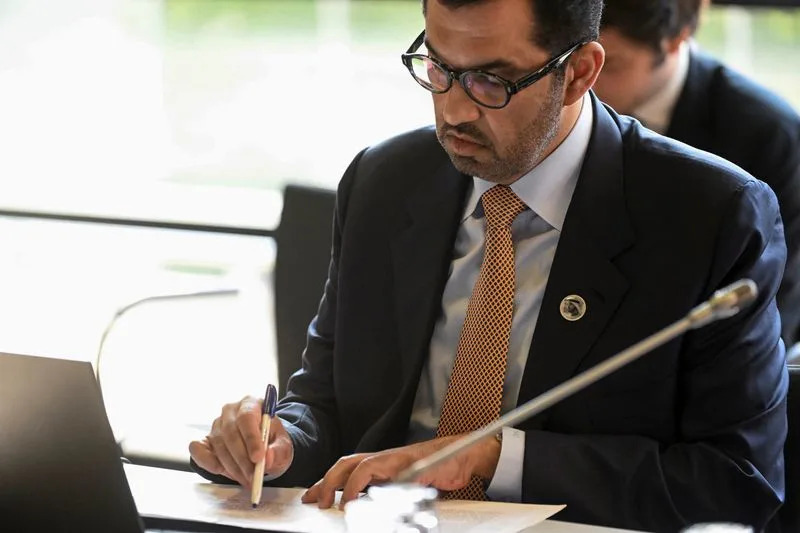
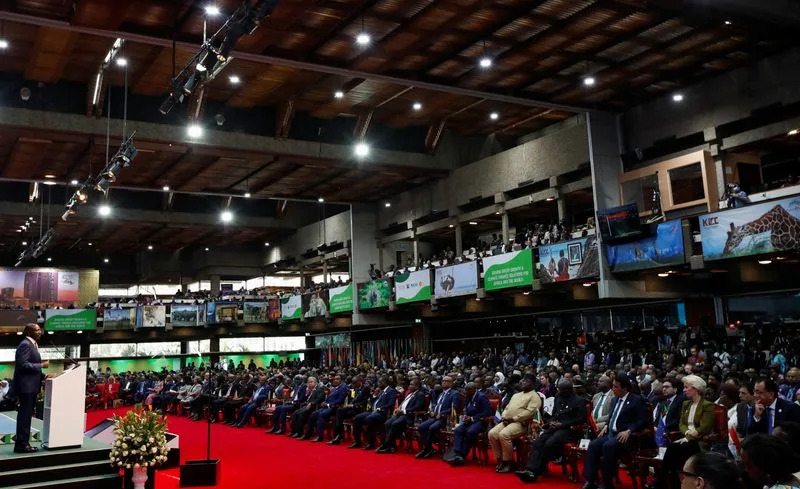
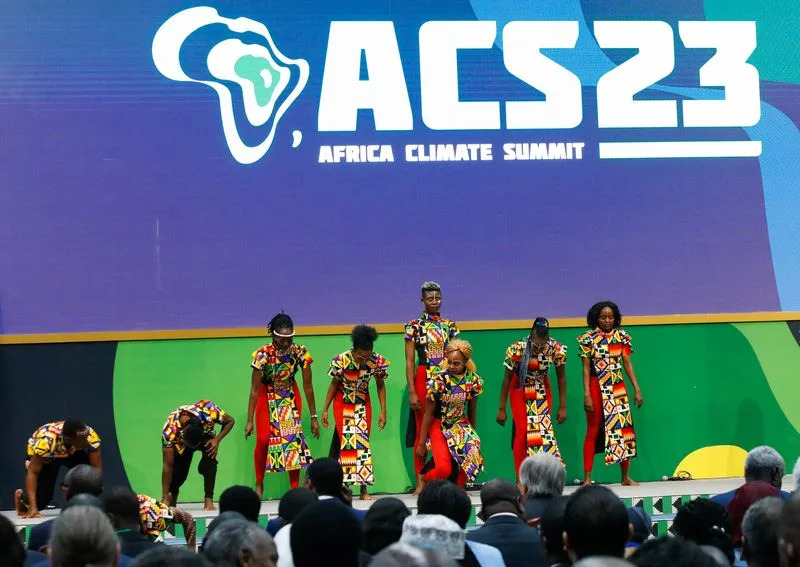
No comments:
Post a Comment